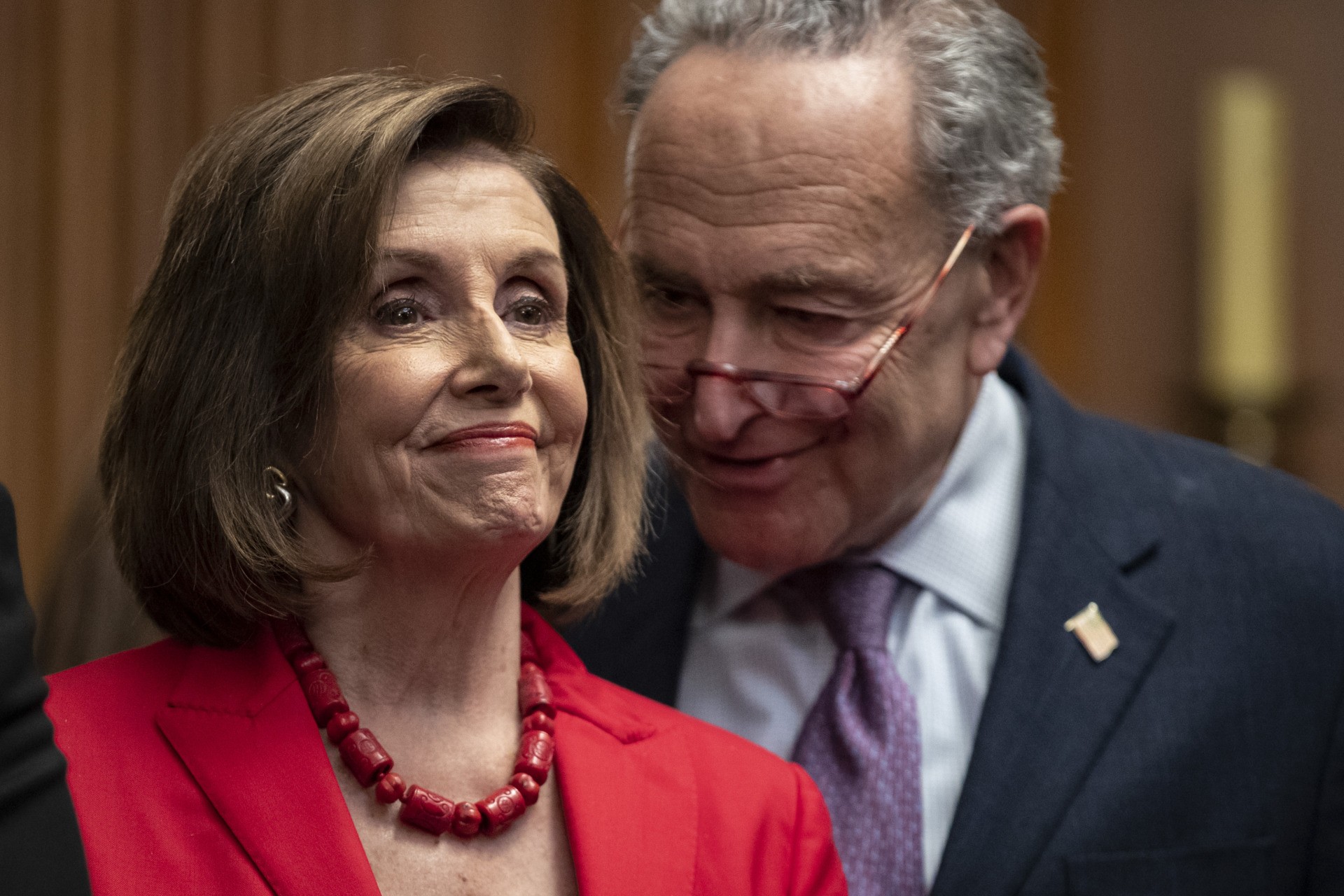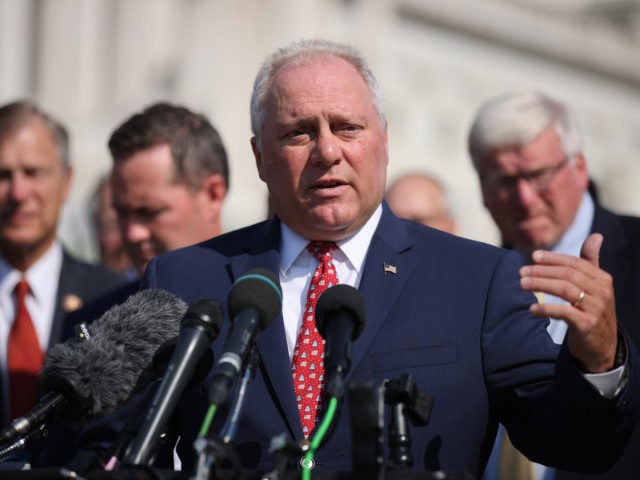House Republican support for the so-called bipartisan infrastructure bill has continued to weaken as the chamber moves closer to Speaker Nancy Pelosi’s (D-CA) self-imposed Halloween deadline to pass the bill.
Pelosi and Senate Majority Leader Chuck Schumer (D-NY) set an October 31 deadline to pass the $1.2 trillion so-called infrastructure bill after Pelosi failed to cobble enough votes to pass the bill in late September.

Speaker of the House Nancy Pelosi (D-CA) and Senate Minority Leader Chuck Schumer (D-NY) speak with each other at a press conference. (Drew Angerer/Getty Images).
The self-imposed deadline is two weeks away, and it remains unclear if Democrats can strike an accord within their party to pass the bipartisan infrastructure and the $3.1 trillion Build Back Better Act.
Although the bipartisan infrastructure bill, or the Infrastructure Investment and Jobs Act, would receive Democrat votes primarily, Pelosi may need moderate Republicans to give the bill enough votes to pass.
House Republican leadership has pushed Republicans to oppose the legislation, believing that supporting the Infrastructure Investment and Jobs Act would help shepherd the Build Back Better Act through Congress and give President Joe Biden two legislative victories ahead of the pivotal 2022 midterm elections.
House Republican Minority Whip Steve Scalise (R-LA) announced in late September that he will whip Republicans against the bill.
Scalise also noted in the whip notice the bill:
- Provides $550 billion in new spending over 5 years, but less than half of the new spending goes towards traditional infrastructure.
- Adds additional inflationary spending into an underperforming economy by failing to fully offset the bill – CBO estimates only $180 billion in pay-for offsets, adding $256 billion to projected deficits over the next 10 years.
- Gives the Department of Energy tens of billions of dollars in a Solyndra style slush fund.
- Fails to include any meaningful National Environmental Policy Act (NEPA) permitting reforms, which means that infrastructure projects included in this package will continue to be delayed by Washington red tape.
A House Republican leadership aide told Breitbart News that the Republican support for the bill continues to shrink as it becomes increasingly obvious that the bill is tied to the $3.1 trillion Build Back Better Act.
“There is no question that Republicans vehemently oppose the reckless policies included in the reconciliation bill and Speaker Pelosi’s legislative strategy solidifies that a vote for the infrastructure bill paves the way for passage of reconciliation – Republicans should not aid in this destructive process,” Scalise said in his whip notice in late September.
Sean Moran is a congressional reporter for Breitbart News. Follow him on Twitter @SeanMoran3.

COMMENTS
Please let us know if you're having issues with commenting.